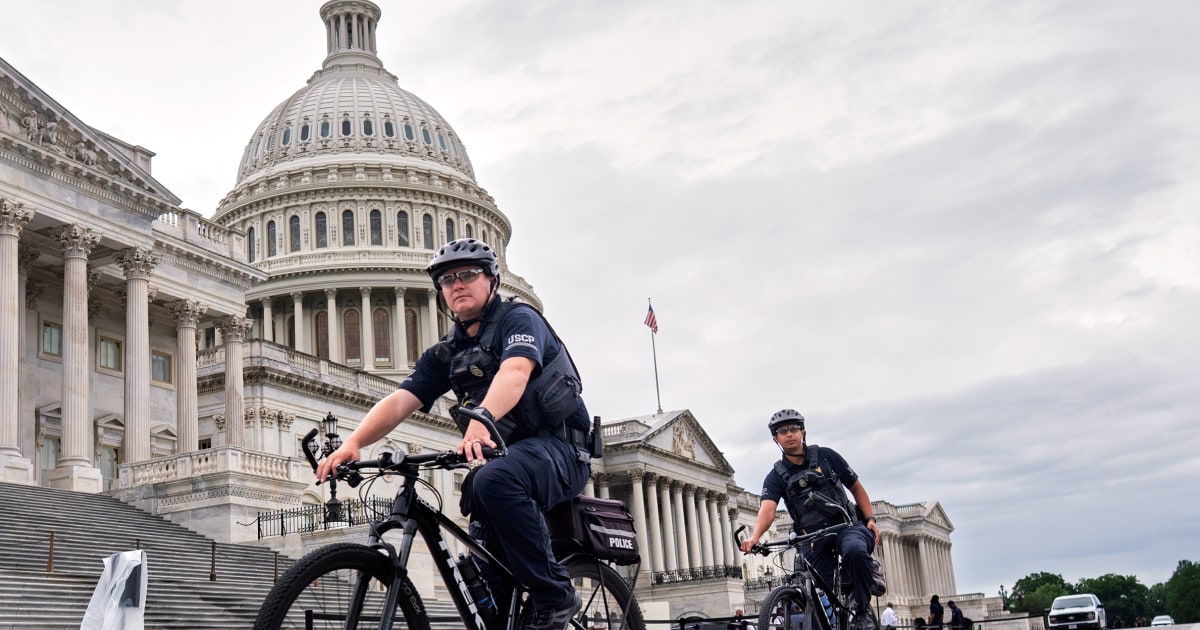Is Trump Boosting Federal Law Enforcement in DC to Combat Rising Crime?

Understanding the Impact of Federal Law Enforcement Presence in Urban Areas
The dynamic between federal law enforcement agencies and urban communities can often be contentious, particularly when crime rates are under scrutiny. Recently, we witnessed a significant increase in federal agents' presence in Washington, D.C., which has sparked various conversations regarding public safety, community trust, and the effectiveness of such measures. This article delves into the implications of federal involvement in local law enforcement, the reasons behind it, and its potential effects on the communities it aims to protect.
The Background of Federal Law Enforcement in Urban Areas
Federal law enforcement agencies, such as the FBI, ATF, and U.S. Marshals, often step in during times of heightened crime rates or when local law enforcement requires additional support. This can occur for several reasons:
- Resource Limitations: Local police departments may face resource constraints, limiting their ability to effectively combat crime.
- Specialized Skills: Federal agencies possess unique expertise and tools that can be beneficial during complex investigations.
- Political Pressure: Political leaders may push for federal involvement to demonstrate action in response to rising crime rates.
President Trump's Influence on Federal Law Enforcement Strategy
The decision to increase federal law enforcement presence in Washington, D.C., has been closely tied to President Trump’s rhetoric regarding crime rates in urban areas. His administration frequently highlighted crime statistics, arguing for a tougher stance against crime. This approach has several implications:
- Heightened Tension: The presence of federal agents can exacerbate tensions between communities and law enforcement.
- Political Messaging: The administration uses these actions to convey a strong message about prioritizing public safety.
- Community Relations: Increased federal presence can impact how residents view law enforcement, often leading to mistrust.
The Role of Community Trust in Law Enforcement
Trust between law enforcement agencies and the communities they serve is crucial for effective policing. When federal agents are deployed to local areas, it can undermine existing trust for several reasons:
- Perception of Occupation: Residents may feel as though their neighborhoods are being occupied, leading to feelings of resentment.
- Lack of Accountability: Federal agents may not be held to the same standards as local officers, raising concerns about accountability.
- Community Engagement: Local police often engage in community-building efforts, which federal agents may not prioritize.
Evaluating the Effectiveness of Increased Federal Presence
While the intention behind increasing federal law enforcement presence is often to reduce crime rates, the actual effectiveness of these measures is still a topic of debate. Here are some considerations:
- Crime Rate Statistics: Analyzing crime statistics before and after federal involvement can provide insights into effectiveness.
- Community Feedback: Gathering input from community members can reveal whether they feel safer or more threatened.
- Long-term Solutions: Effective crime reduction often requires addressing root causes, such as poverty and lack of education, rather than solely relying on enforcement.
The Future of Policing in Urban Areas
The landscape of policing is evolving, and the interaction between federal and local law enforcement will likely continue to be a hot topic. Here are some potential future trends:
- Increased Collaboration: There may be more focus on collaboration between federal and local agencies to build trust and improve effectiveness.
- Community-Centric Approaches: There is a growing recognition of the need for community-centric policing strategies that prioritize engagement.
- Policy Reforms: Ongoing discussions about criminal justice reform may lead to significant changes in how law enforcement operates.
Conclusion
The deployment of federal law enforcement in urban areas like Washington, D.C., raises important questions about public safety, community relations, and the effectiveness of such measures. As communities navigate these complex dynamics, it is essential to prioritize trust and collaboration to foster safer environments for all. Understanding the implications of federal involvement is vital for developing effective and equitable policing strategies in the future.
FAQs
What are the main reasons for increased federal law enforcement presence in cities?
Increased federal law enforcement presence often occurs due to resource limitations in local police departments, the need for specialized skills in handling complex crimes, and political pressure to address rising crime rates.
How does the presence of federal agents affect community trust?
The presence of federal agents can lead to a decline in community trust as residents may perceive them as an occupying force, raising concerns about accountability and community engagement.
Are there effective alternatives to increased federal law enforcement presence?
Effective alternatives include community-centric policing approaches, addressing root causes of crime such as poverty and education, and fostering collaboration between federal and local law enforcement agencies.
How can communities build trust with law enforcement while addressing crime effectively? The conversation surrounding public safety is complex and requires thoughtful engagement from all stakeholders. #PublicSafety #LawEnforcement #CommunityTrust
Published: 2025-08-09 01:01:36 | Category: Trump GNEWS Search



